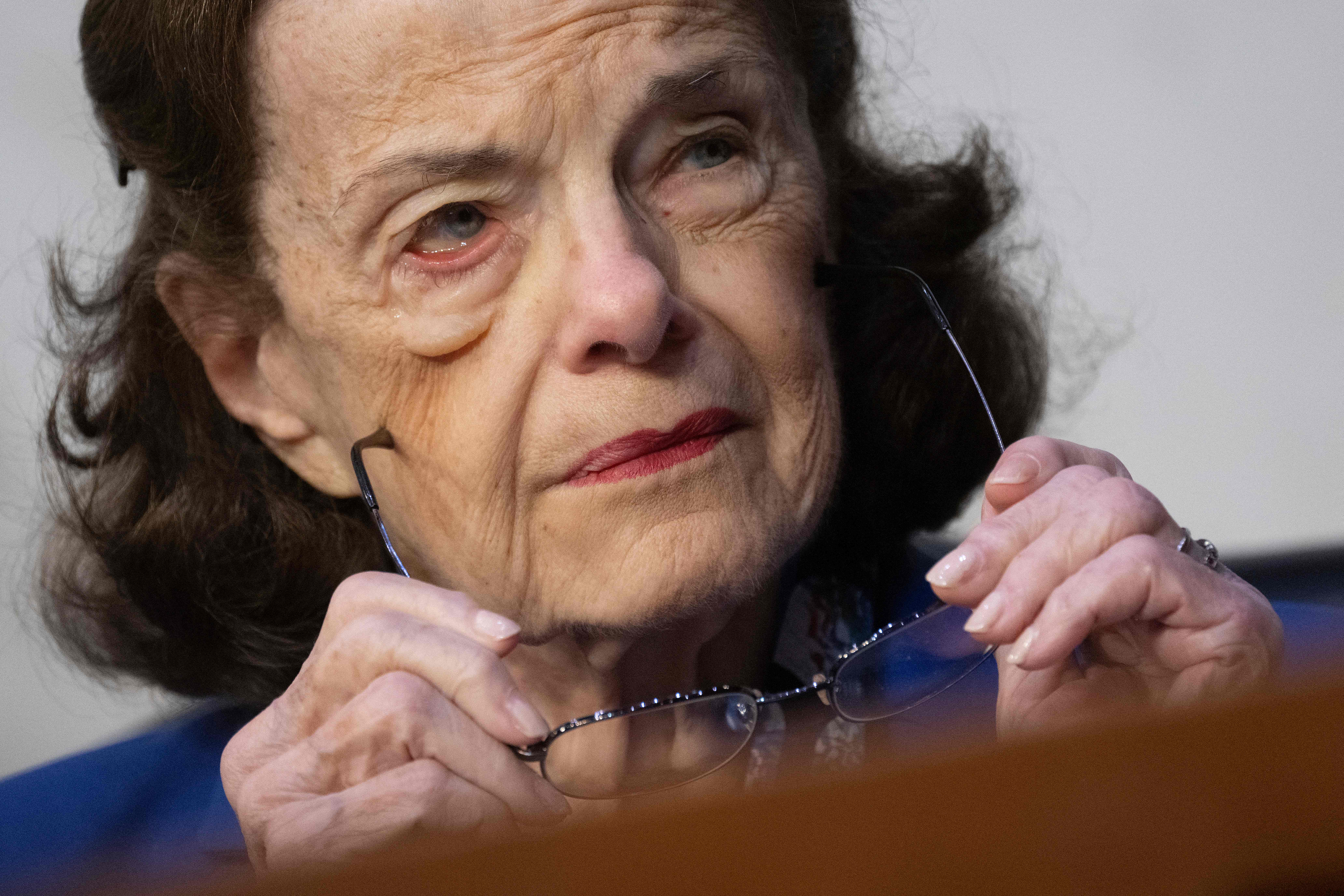What Jewish law says about Dianne Feinstein, Bernie Sanders and how old is too old
Respect for our elders is a central value. So is looking out for their best interests.

US Senator Dianne Feinstein upon her return to the Senate on May 10, 2023. Photo by Getty Images
Respect for elders is a central Jewish value. “You shall rise before the aged, and show deference to the old,” God tells the Children of Israel in Leviticus 19:32. And, when age affects one’s mental acuity, the Talmud reminds us in Berakhot 8b to “take care with an elder who has forgotten his learning because of circumstances beyond his control.”
These seemingly personal issues have, in our day, become political as well. We are living in a gerontocracy. The most powerful people in Washington are almost all in their 80s: President Joe Biden; former House Speaker Nancy Pelosi; and Senate Majority leader Mitch McConnell, who suffered some kind of neurological incident during a press conference recently; as well as Senator Dianne Feinstein, now 90, who has shown signs of mental and physical decline.
On the one hand, both Jewish values and contemporary concerns over ageism make clear that stigmatizing or discriminating against someone because of their age is morally wrong. It’s also often inaccurate: After all, Paul McCartney, Bob Dylan and Mick Jagger are also in their 80s, and still performing in front of sold-out stadiums.
On the other hand, respect for elders also means helping them maintain their dignity. Nearly every family has, at some point, had to make difficult decisions about keeping our beloved elders safe and well cared-for, often against their own wishes. These choices are often heart-rending and deeply personal, less a matter of the “right” and “wrong” answer than about shades of gray in between.
After all, the value of kibud zekaynim — respecting the elderly — cuts both ways. We want to honor the elder’s wishes, respecting their autonomy, but at the same time, they may no longer possess the mental fitness to decide matters wisely for themselves.
Many progressives, and many American Jews, are facing a similar conundrum when it comes to Senator Feinstein.
Though she has many critics on the Left (for good reason, as she has often taken centrist rather than progressive stances), she is widely regarded as a hero in the Democratic party, and a feminist trailblazer. All elders deserve respect, but Senator Feinstein even more so.
Yet Senator Feinstein’s frail health, and seemingly weakened mental faculties, have added an uncomfortable and undignified postscript to her distinguished career. She was absent for ten weeks this spring, battling shingles, and returned in seemingly frail condition, relying heavily on aides both physically and, it appeared, mentally. She frequently appears disoriented and at least once, had to be reminded to vote.
What does kibud zekaynim require in such a case: Should Feinstein’s friends and allies respect her refusal to step down, or strongly but privately encourage her to do so?
There is no single “Jewish answer” to this question, but it’s clear that unwavering support for her position is not it. There are good reasons to ask whether Senator Feinstein is fully aware of her cognitive limitations.
Moreover, these absences have had political consequences. For example, because the Senate is so narrowly divided between Democrats and Republicans, her absence delayed the confirmation of three judicial nominees. That’s a small number so far, but if there are more absences in the future, it would become a major crisis. Donald Trump appointed a record 226 life-tenure judges in his four years in office (84% white and 76% male, by the way, and a record 10 appointees deemed “not qualified” by the American Bar Association). So far, Joe Biden has appointed only 103.
More broadly, it is no disrespect to Senator Feinstein to suggest that the Democratic Party needs to be nurturing younger leadership. Politically, there would be no negative impact were she to step down: California Governor Gavin Newsom would obviously nominate another liberal, and has pledged to nominate a woman of color as well. And with President Biden’s age a primary concern to many voters, the party needs as many younger faces as it can get.
It’s important, in pondering such considerations, not to lapse into stereotypes. In the previous paragraph, I initially wrote that Biden was “showing his age” — but that’s an ageist stereotype. There are plenty of healthy, vibrant, articulate 80-somethings. And many, like the 81-year-old Senator Bernie Sanders, appeal to younger voters. There’s no such thing as “showing one’s age.”
It’s also all too easy for legitimate concerns to be mixed up with ageist and ableist prejudices. For example, many commentators on Senator Feinstein have noted her recent use of a wheelchair, which is completely irrelevant to her fitness to serve as a United States Senator. The only time a physical or mental limitation is relevant is when it makes it it impossible for a public official to fulfill their official duties.
That, to me, is what kibud zekaynim really requires: not a particular substantive outcome, but a respectful and careful process of discernment. For Senator Feinstein’s own sake, and for the sake of the country, I hope that process is unfolding among those who love and care for her. As the Psalmist sang, “Do not cast me off in old age — when my strength fails, do not forsake me.”

















